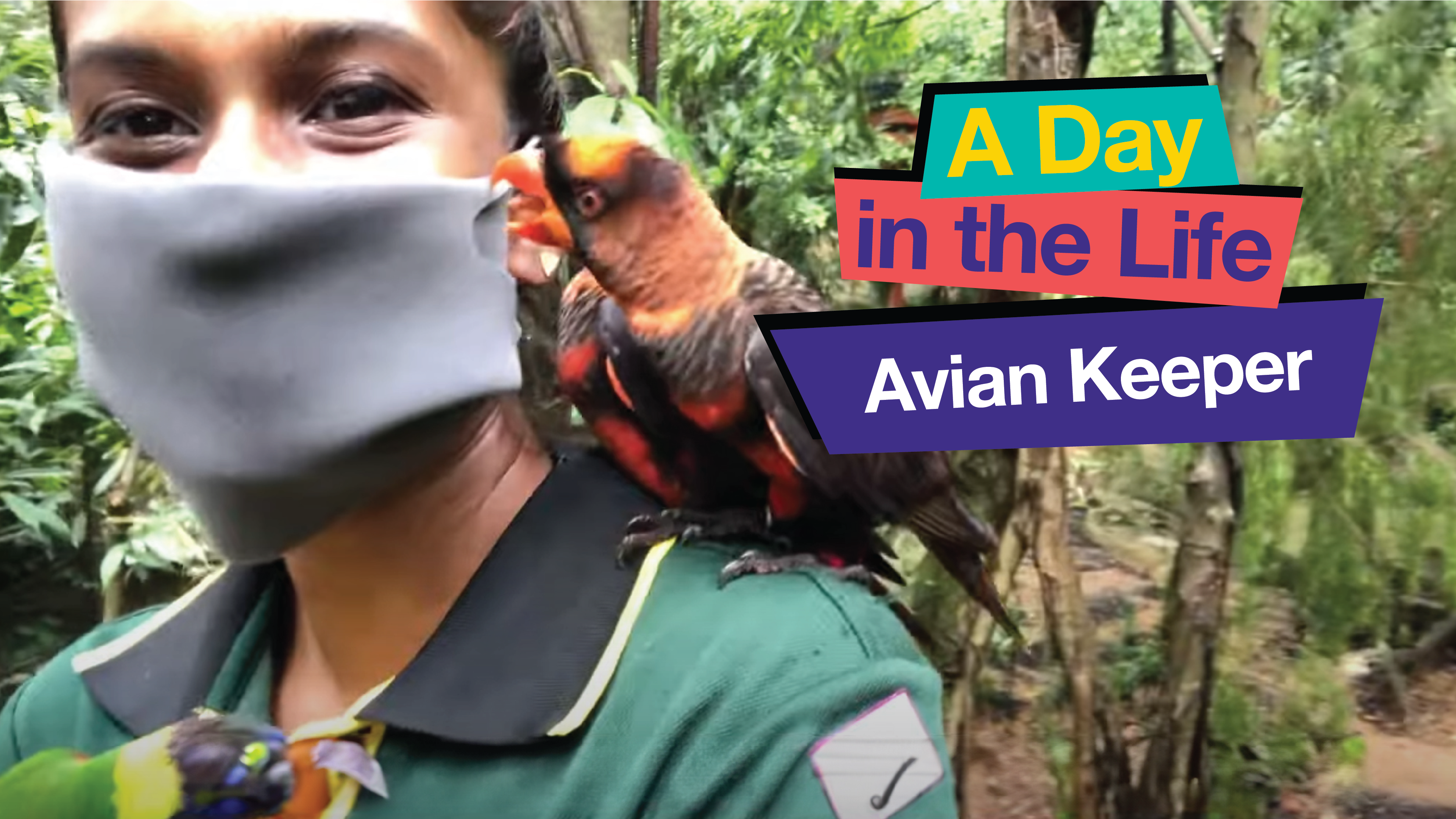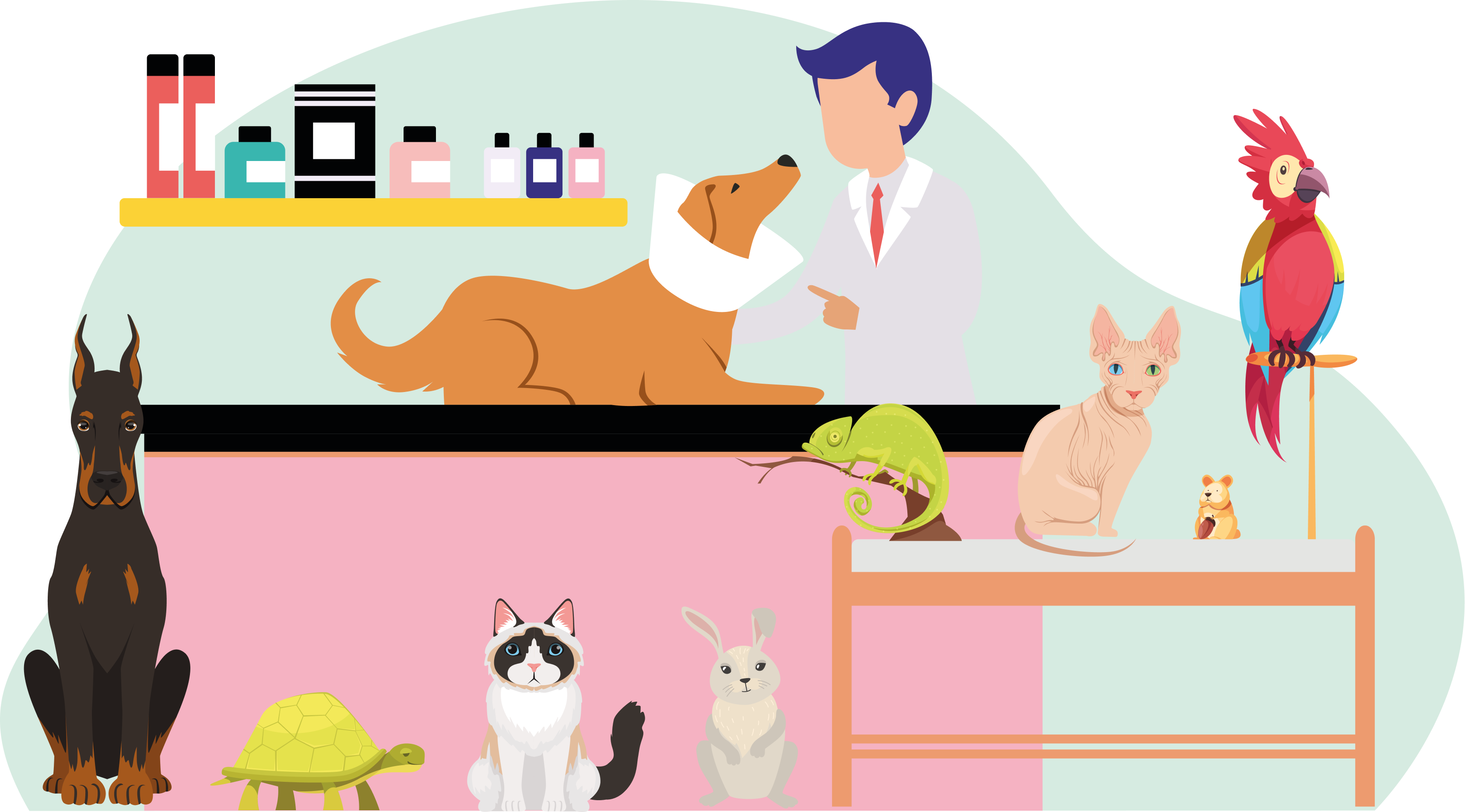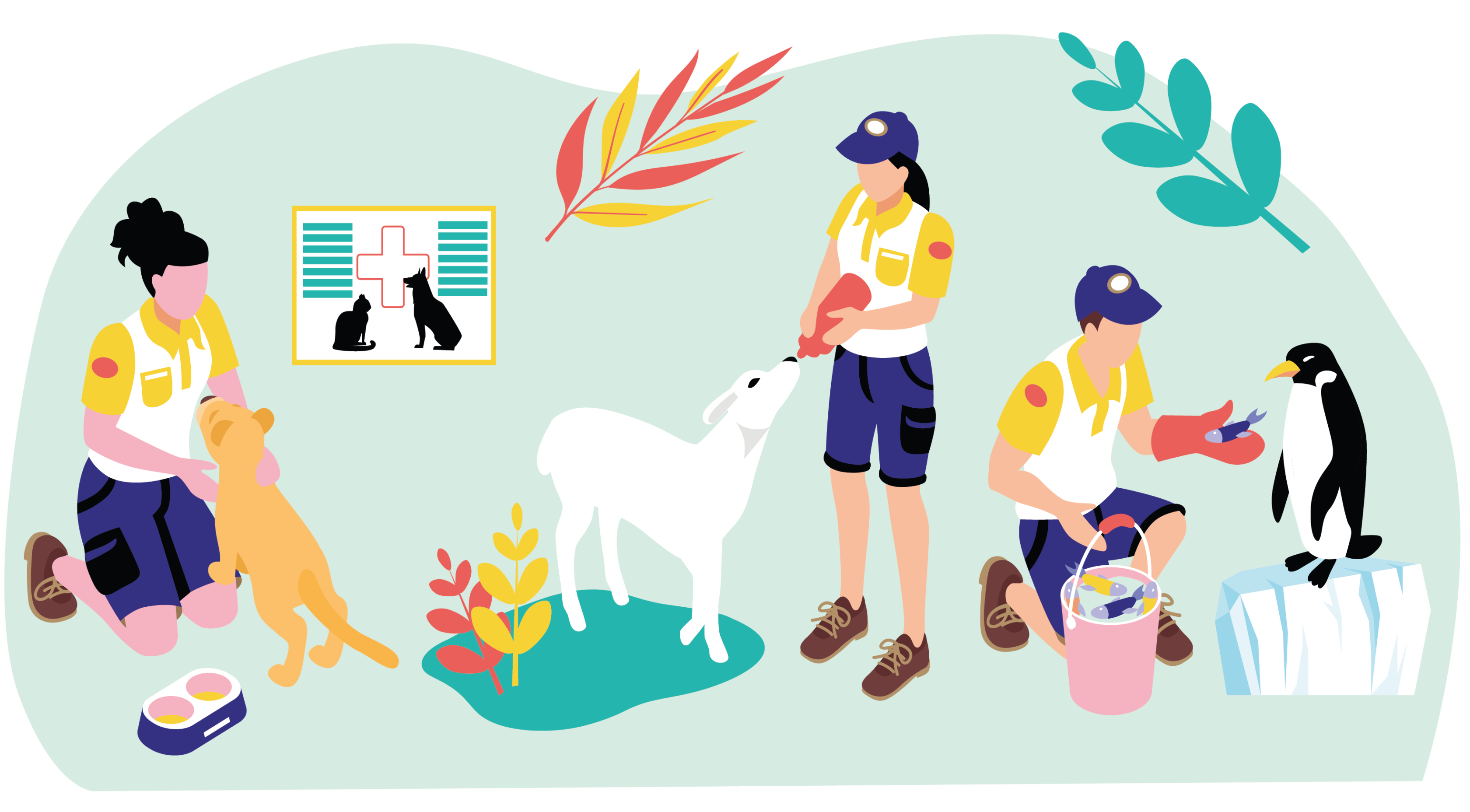
Animal Care Officers are responsible for the treatment, care, and overall well-being of animals. They help ensure animals live in safe environments, often involving rescue operations for those in distress or harm's way.
Animal Care Officer Job Description
- Bathe animals, ensuring their hygiene and comfort.
- Check and replenish water and food supply so that animals receive proper nutrition.
- Clean and disinfect animal living spaces (E.g. Cages, Kennels or Enclosures) to maintain a healthy and disease-free environment.
- Ensure animals are medicated according to Veterinary guidance.
- Feed and take care of the needs of injured or elderly animals based on specific care plans.
- Maintain proper documentation records of animals for tracking and reference.
Note
Animal Care Officers can also work in Veterinary clinics! Some of them are even trained to vaccinate or euthanise animals when necessary.
What you should know about Animal Care Officer jobs in Singapore
Nature of Work
You will record and observe animal behaviour. Proficiency in English is key for accurate reports and communication with owners.Key Advice
Some animals will be aggressive in the beginning due to fear, so exercising patience is important–keen observation and detailed reporting are your best tools.-
Entry RequirementsEntry Requirements
- It depends! If you would like to work at animal shelters such as the Society for the Prevention of Cruelty to Animals (SPCA) in Singapore, you would be required to have a minimum 'N' Level qualification.
- However, if you would like to work under Wildlife Reserves Singapore, you would be required to have a degree in Biology, Veterinary, Life Sciences, or any relevant field. Having knowledge and a passion for animals is also an advantage!
- Previous experience with animal care or in a Veterinary setting and a certification in first aid for animals can be advantageous.
-
Possible PathwayPossible Pathway
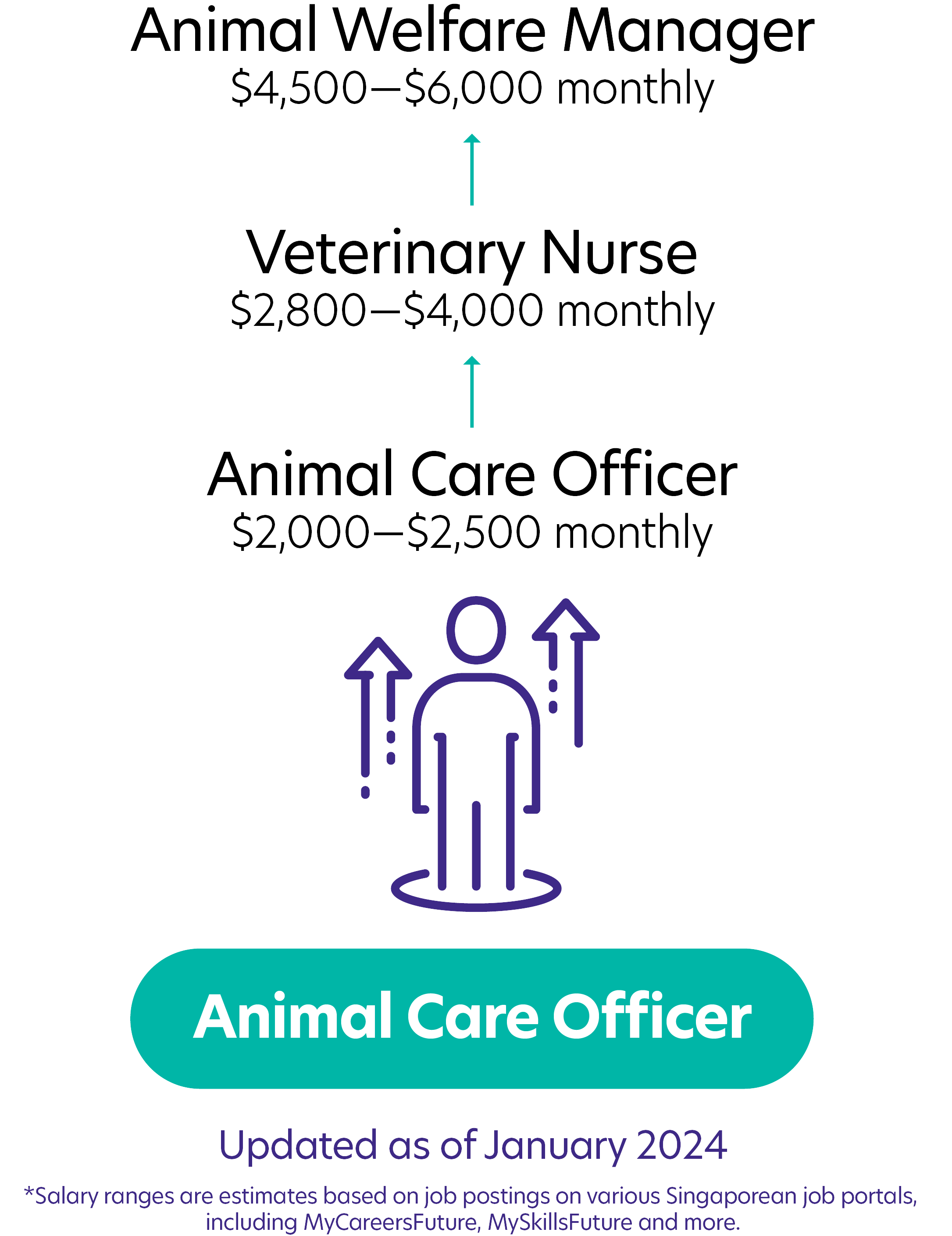
Skills you need to pursue an Animal Care Officer career in Singapore
Knowledge of animals
Extensive knowledge and understanding of animal behaviour, living needs, and health care essentials.Experience in handling animals
Skilled in safely managing, restraining, and caring for different kinds of animals.Physical Fitness
Ability to perform and adjust to physically demanding tasks involved in the care of many kinds of animals.Interpersonal Skills
Ability to effectively communicate and foster teamwork when working with colleagues and the public.Passion for Animal Welfare
Possesses deep commitment and dedication to the health, safety, and rights of animals.Writing Skills
Proficiency in creating clear, detailed reports and records on animal health and behaviours.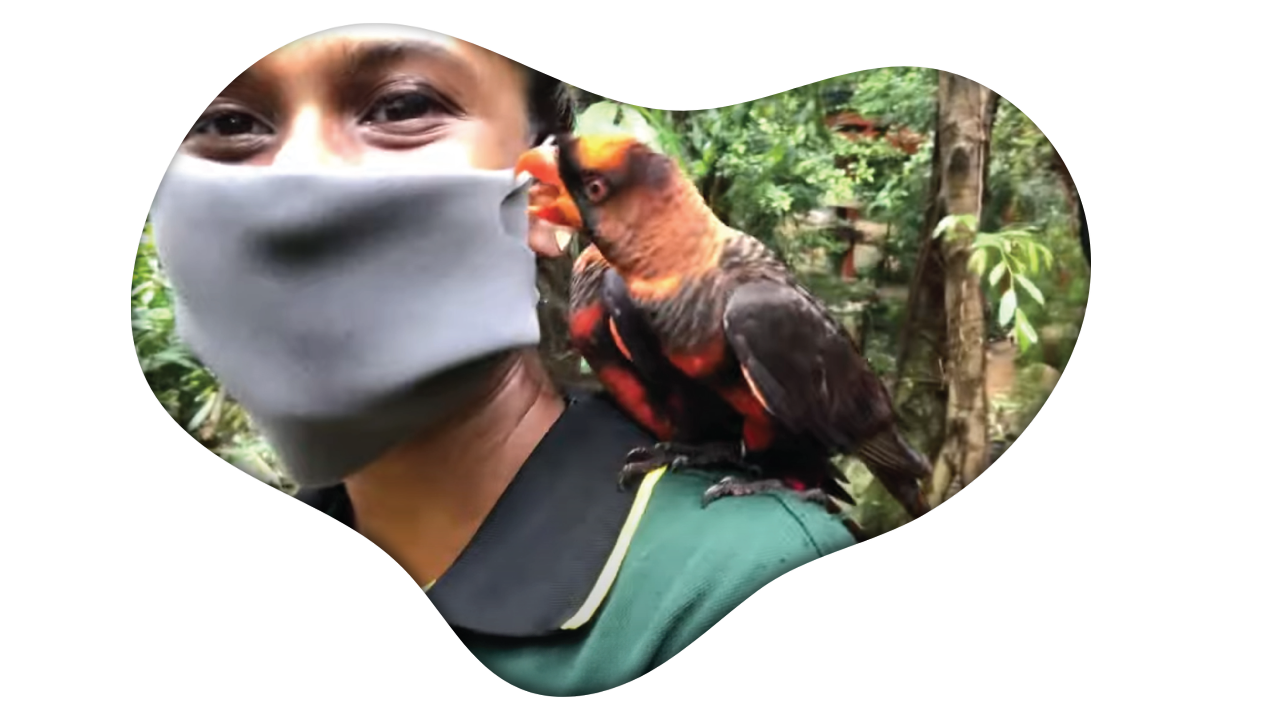
“I enjoy coming to work to take care of our birds the best we can. We have to be there for the animals.”
Nara, Avian Keeper
Related Job Roles
Explore Other Programmes
Browse AllYou have bookmarked your first item!
Find it in My Discoveries with insights on your interests!

